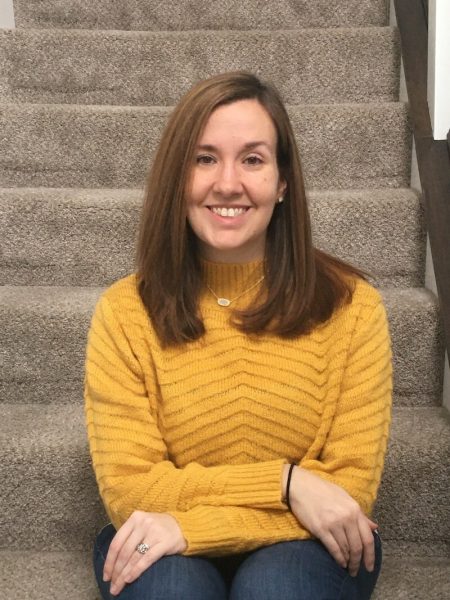By Jane Sevier and Jenna Somers

Meghan Burke joined Vanderbilt Peabody College of education and human development in August as professor of special education. Her research interests include family advocacy, families of individuals with disabilities, and disability policy. She examines how families advocate for services for their family members with disabilities as well as how siblings of individuals with disabilities transition to caregiving roles.
“I am thrilled to join the Department of Special Education. With an international reputation for its scholarship, commitment to the field, and innovative ideas, the special education department is unparalleled. It is an honor to work alongside faculty and students who are pushing the field forward,” Burke said.
Burke has developed and tested advocacy programs, including the Vanderbilt Kennedy Center’s Volunteer Advocacy Project to educate and empower parents of individuals with disabilities to access services, not only for their own offspring but also for other families and for systemic change. To date, the project has been replicated in seven states and has been offered in English, Korean, and Spanish to families of individuals with disabilities.
Additionally, Burke’s research is widely cited and informs the work of practitioners. She and Robert Hodapp, professor of special education at Peabody College, collaborated on one of her most cited studies in which they examined the relationship between the stress of mothers of children with developmental disabilities and family-school partnerships. They found that mothers with lower stress levels reported better parent-school relationships and low levels of parent advocacy. The study reinforced the understanding that excellent parent-school relationships are important for supporting the needs of children with disabilities and the mental health of their caregivers.
In a more recent study, Burke and her co-authors found that telehealth for early intervention services provides families with more advantages than disadvantages. Participants found that telehealth was safe, flexible, and eliminated wait times in accessing services. It also enhanced family-professional partnerships. That said, families suggested that receiving support with technology access and use as well as an initial in-person visit would improve telehealth services. This study offers important implications for researchers and telehealth providers.
Prior to joining the Peabody faculty, Burke taught at the University of Illinois Urbana-Champaign, where she was a professor in the Departments of Special Education and Education Policy, Organization, and Leadership. While there, she secured funding for the Early Intervention Clearinghouse to loan iPads and/or data plans to more than 300 families so they could receive early intervention services via telehealth during the pandemic. Thus, her research not only has scholarly importance but also has the potential to impact individual lives.
Burke has lectured widely and published more than 136 articles in scholarly journals such as Autism, American Journal of Intellectual and Developmental Disabilities, and Journal of Special Education. She serves as an associate editor for three journals: Journal of Developmental and Physical Disabilities, Journal of Child and Family Studies, and Physical Disabilities: Education and Related Services. Burke is a member of eight editorial boards, including Research and Practice for Persons with Severe Disabilities, Journal of Disability Policy Studies, and Intellectual and Developmental Disabilities. She is co-author of Families and Professionals: Trusting Partnerships in General and Special Education. 8th Edition. (2021, Pearson) and Exceptional Lives: Practice, Progress, and Dignity in Today’s Schools (2023, Pearson).
Burke earned her master of science and doctorate in special education-low incidence disabilities at Vanderbilt Peabody College and is a Board Certified Behavior Analyst—Doctorate.